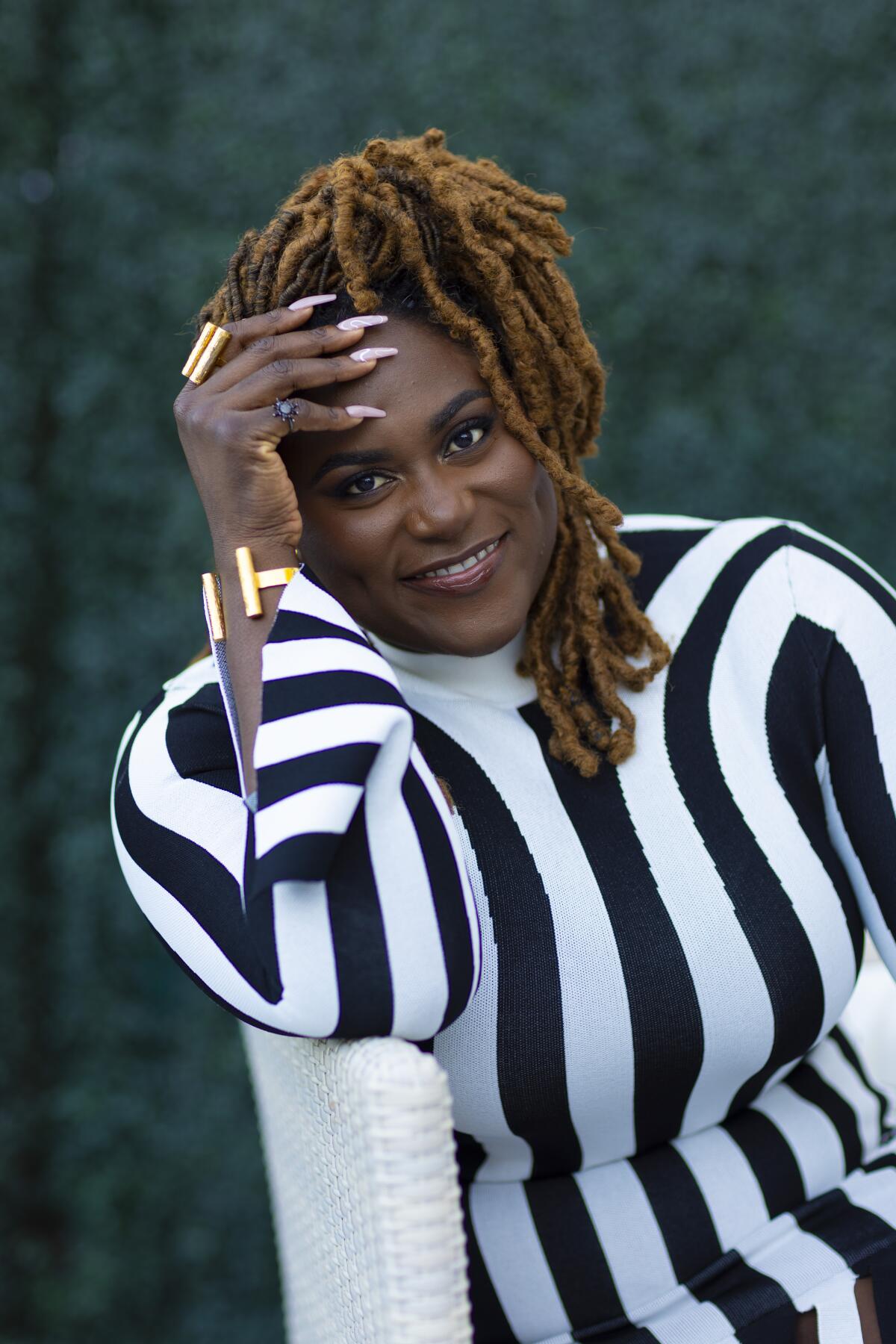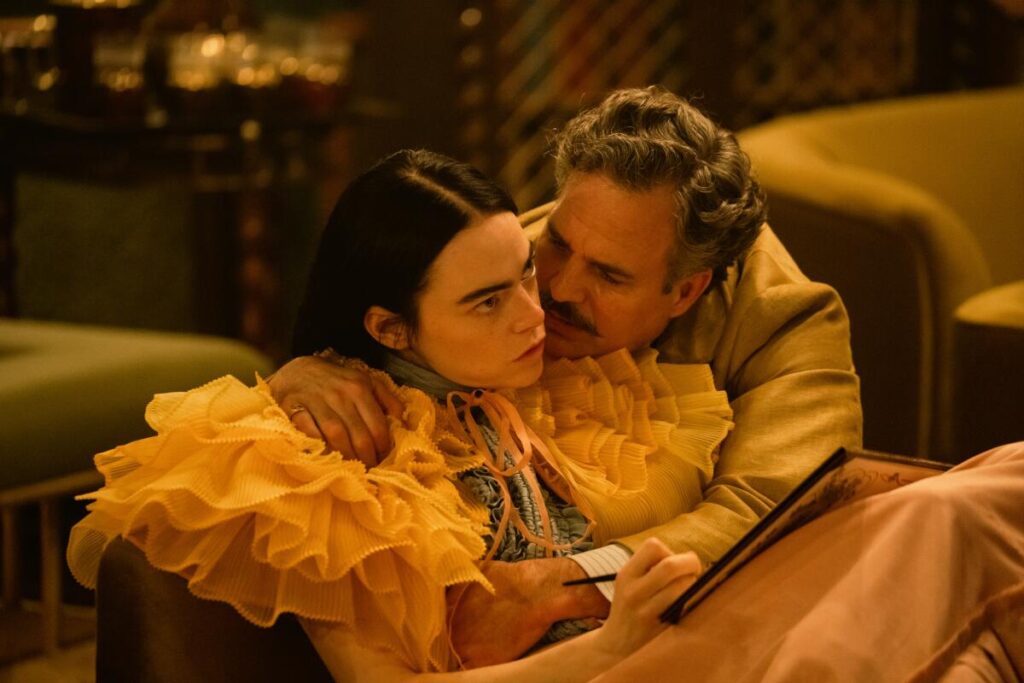Have you ever been running late for something — work, school, a date, a 10K run — and found yourself completely at the mercy of forces outside your control?
Since many of you reading this live in Los Angeles, that’s something of a rhetorical question. The 405 remains undefeated. But it’s nothing really compared to what we see in “Full Time,” a frenetic French thriller about a single mother facing all manner of obstacles, thanks to a crippling transit strike, as she tries to get to her chambermaid job at a five-star Parisian hotel. Laure Calamy (“Call My Agent!”) stars and is so utterly convincing that you’ll need a six-pack of Valium after watching her barnstorm through her chaotic workweek.
“Full Time” had a brief theatrical run in February and can currently be streamed on Amazon Prime. At 88 minutes, it’s the perfect movie for anyone, like its heroine — like all of us — crunched for time.
I came across “Full Time” during some last-minute cramming before my annual vote as a member of the Los Angeles Film Critics Assn., a responsibility that produces its own share of anxiety because there is always one more movie to see, one more performance to check out and never enough time because, again, the 405 remains undefeated.
One movie that was a relatively late discovery for me was Ava DuVernay’s “Origin,” an audacious adaptation of journalist Isabel Wilkerson’s nonfiction bestseller “Caste: The Origins of Our Discontents.” Aunjanue Ellis-Taylor plays Wilkerson as she goes on a journey to link the caste systems of America, India and Nazi Germany to show how people are degraded and separated. It’s a bold movie, brimming with ideas and emotions, and Ellis-Taylor holds it together with a quiet, sensitive power. I’ve never seen a film like it.
Right now, Oscar voters are hunkering down for the holidays, hopefully discovering performances like these and so many others in this exceptional year for movies. In addition to Ellis-Taylor and Calamy, here’s a brief look at the women vying for attention in the races for lead and supporting actress.
Emma Stone, here with Mark Ruffalo, takes a bold swing in “Poor Things.”
(Atsushi Nishijima / Searchlight Pictures)
LEAD ACTRESS
Any talk of big swings this year has to include Emma Stone’s go-for-broke, no-holds-barred (and whatever other multi-hyphenated adjectives you can conjure, because it’s that kind of movie) turn in “Poor Things.” Stone takes her character from ungainly adult toddler to feminist philosopher, dazzling us at every point and proving, once again, that she’s arguably the best actress of her generation.
Lily Gladstone’s work in “Killers of the Flower Moon” possesses equal authority, only she conveys it through silences and sheer presence. Gladstone has won several early critics prizes, gaining momentum that could well win her the Oscar. People respect the movie; more so, they love what she brings to it.
Carey Mulligan received her first Oscar nomination for the 2009 coming-of-age drama “An Education” and returned to the fold a decade later with “Promising Young Woman.” She has won raves for playing Felicia Montealegre, the wife of conductor Leonard Bernstein, in “Maestro,” a biopic that centers its story on their complicated marriage. Mulligan receives top billing and is largely responsible for the film’s emotional power.
Sandra Hüller could well be nominated for lead and supporting as her work as the writer accused of killing her husband in the French thriller “Anatomy of a Fall” and the unsparing performance as the wife of the Auschwitz commandant in “The Zone of Interest” provide a formidable one-two punch that knocks out audiences cold. Voters remember when you’re a vital part of two of the year’s best movies.
Annette Bening gives a fierce, zero-f—-given performance as long distance swimmer Diana Nyad in “Nyad,” with Jodie Foster providing terrific support as the coach and BFF. It’s the most enjoyable buddy movie of the year. Foster might end up being the one nominated, as the lead category is gloriously competitive this year. That dynamic could also apply to Fantasia Barrino, superb in “The Color Purple,” but in a role that isn’t as flashy as those of co-stars Danielle Brooks and Taraji P. Henson.
There are so many other worthy performances — Greta Lee in “Past Lives,” Michelle Williams in her latest, terrific collaboration with Kelly Reichardt, “Showing Up” — but I’ll leave you with one you already know but could go unappreciated because of its genre. Margot Robbie brings it all to “Barbie” — comic timing, emotional depth, the precise body control required to play a plastic doll. The movie owes much of its brilliance to her starring turn. The Oscars had better not celebrate Ken without extending an invitation to Barbie as well.
Nominees: Stone, Gladstone, Hüller, Mulligan, Robbie

Brooks’ juicy role in “The Color Purple” could give her an edge.
(Robert Gauthier / Los Angeles Times)
SUPPORTING ACTRESS
I mentioned Foster and her warm, charismatic turn in “Nyad.” That’s a no-brainer, as voters will be eager to welcome the Oscar winner back to the ceremony. I’m not sure if both Brooks and Henson make it in for “The Color Purple.” They each have showstopping musical numbers that have gone over great at early screenings. Brooks has the juiciest part, the one she aced on Broadway and Oprah Winfrey played in the 1985 Steven Spielberg film. We’ll gauge the response when the movie opens on Christmas.
Da’Vine Joy Randolph has won many of the early prizes in this category for her turn in “The Holdovers,” playing a prep school cafeteria worker stranded for the holidays and missing her son, killed in Vietnam. Alexander Payne’s movie is widely liked; Randolph’s performance is universally loved.
Another movie opening Christmas Day is “Ferrari,” and I can’t wait for audiences to see what Penélope Cruz brings to the film as Laura Ferrari, the wife and business partner of motor racing mogul Enzo Ferrari. Director Michael Mann calls Cruz the “beating heart” of the film. She’s certainly a huge reason why it works as well as it does. Emily Blunt also played a long-suffering wife this year, and her work in “Oppenheimer” elevates the role into something truly memorable.
Then there are two women who make the most of scant screen time: Viola Davis in “Air,” Tilda Swinton in “The Killer.” There’s America Ferrera and her powerful “Barbie” monologue. There’s Julianne Moore wondering if there are enough hot dogs in “May December,” Rosamund Pike being all saucy in “Saltburn” and Claire Foy making us cry as the ghostly mom in “All of Us Strangers.” Only Rachel McAdams’ luminous turn in “Are You There God? It’s Me, Margaret.” could give Foy a run for the year’s mother of the year prize. They’re everything.
Nominees: Brooks, Randolph, Foster, Blunt, Moore

